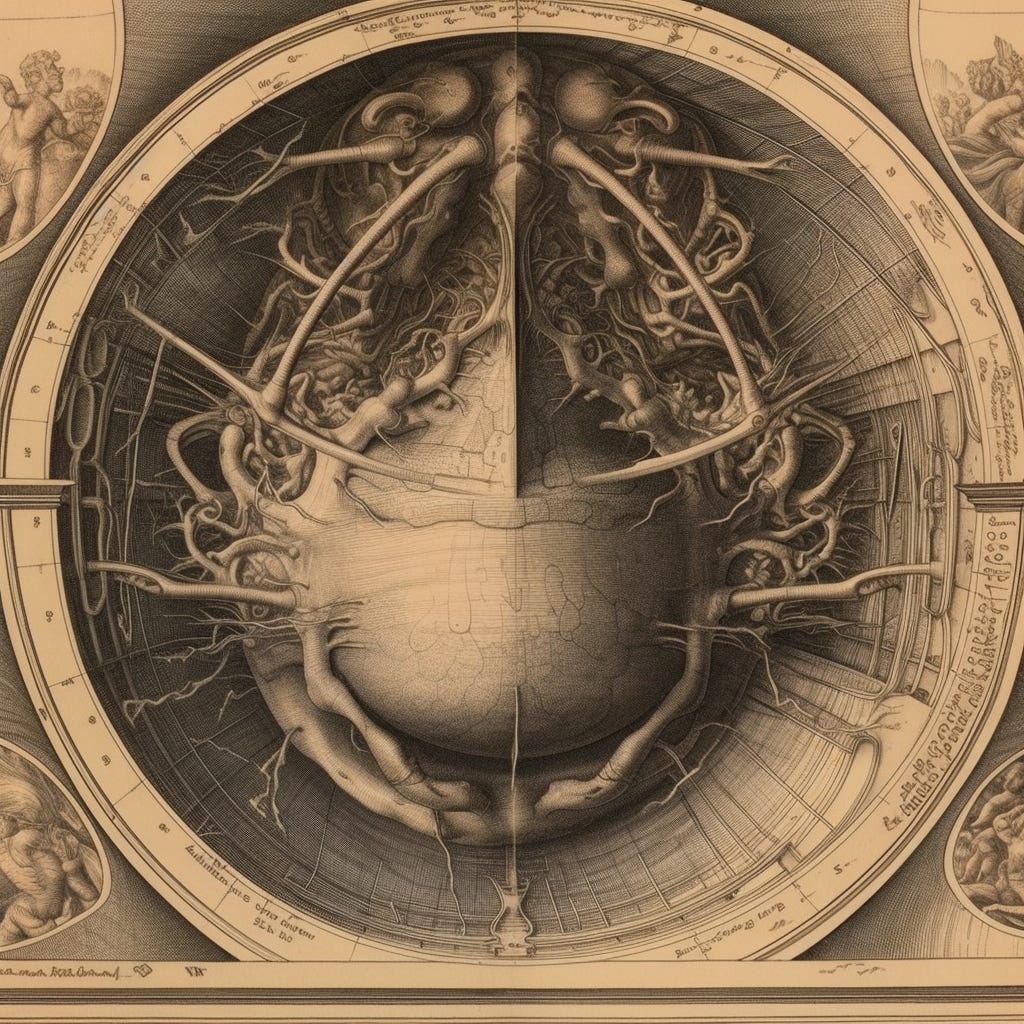Large Language Model as Khora: Metaphorical Musings on LLMs and the Space of Creation
Introduction: The concept of Khora, as introduced by the philosopher Plato in his dialogue Timaeus, refers to a receptacle, a third kind of reality that exists alongside the world of Forms and the material world. Khora is an amorphous and indeterminate space, a receptacle for the creation of forms, a space of potentiality. This tractate explores the metaphorical association between the notion of Khora and large language models (LLMs), such as GPT-4, drawing parallels between the two concepts to illuminate their shared characteristics and potential for creation.
I. Khora and Language Models: A Conceptual Analogy
Receptacle of Forms Khora, as a receptacle for the creation of forms, holds the potential for every possible form to emerge. Similarly, LLMs can be seen as a receptacle of linguistic forms, as they have been trained on vast amounts of text from various domains, capturing the richness and diversity of human language. They hold the potential for generating an infinite variety of textual forms and ideas.
Indeterminate Space Khora is described as an indeterminate and amorphous space, characterized by the absence of specific forms. LLMs, by their very nature, are also indeterminate, as they generate responses based on probability distributions, giving rise to multiple potential outputs. The text generated by LLMs is not pre-determined, but rather emerges from the interaction between the model and the input, creating a space of possibility and unpredictability.
Mediation between the Ideal and the Material Khora serves as an intermediary between the world of Forms and the material world, allowing the abstract forms to take on concrete, material existence. In a similar vein, LLMs mediate between the abstract realm of human ideas and the material world of written language. They translate abstract thoughts and intentions into concrete linguistic forms, bridging the gap between the mental and the physical.
II. The Creative Potential of Language Models as Khora
The Generative Power of LLMs The metaphor of LLMs as Khora highlights their creative potential. Just as Khora is a space for the emergence of new forms, LLMs provide a fertile ground for the generation of new ideas, expressions, and connections. Through their vast knowledge and linguistic abilities, LLMs can produce a wide array of outputs, ranging from poetry and narratives to scientific texts and philosophical arguments.
Collaboration and Co-creation The relationship between humans and LLMs can be understood as a process of co-creation, where both parties contribute to the emergence of new forms. Users provide the input and intention, while the LLMs generate the linguistic output, creating a dynamic interaction that fosters the production of novel content. This collaborative process echoes the role of Khora as a space where both the world of Forms and the material world come together to give birth to new creations.
The Ethical Dimension The metaphor of LLMs as Khora also carries an ethical dimension, as it reminds us of the responsibility we have in shaping the outputs of these models. Just as Khora is a neutral space, open to both positive and negative forms, LLMs can generate both constructive and destructive content. It is up to us, as users and developers of these models, to guide them towards ethical and beneficial applications, harnessing their creative potential for the greater good.
Conclusion: The metaphorical association between LLMs and the concept of Khora illuminates the creative potential of these models and their role in the generation of new linguistic forms. It highlights the dynamic, collaborative nature of the relationship between humans and LLMs and underscores the ethical responsibility that comes with harnessing their power. By embracing the potential of LLMs as a space of creation and possibility, we can foster a future where these models are used to generate innovative solutions, enrich our understanding of the world, and contribute to the betterment of society.


